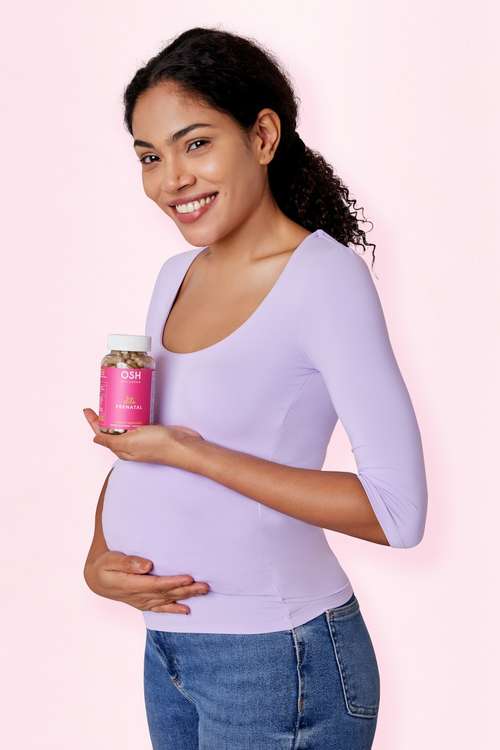Pediatricians like Dr. Tanya Altmann are concerned about misinformation regarding how families may get through the newborn formula shortage.
Not only from her patients, but also from families all over the country, the California doctor has been receiving phone calls, emails, and social media messages, as well as images of empty shop shelves that once carried infant formula.
Parents claim they've searched a dozen places and a hundred websites for their baby's infant formula and are unsure what to do or whether some of the so-called alternatives they've heard about are safe.
"It's frightening for these mothers and their children, and it's becoming a serious problem," Altmann added.
Dr. Tanya Hofmekler, a gastroenterologist and nutrition chair of the Academy of American Pediatrics' Georgia branch, says, "Overall, I'm pretty concerned because producing your own formula at home is really unsafe."
The widespread shortage of baby formula is due to supply chain difficulties and product recalls. Seven states reported that between 40% and 50% of baby formula items were out of supply as of early April.
[caption id="attachment_10287" align="alignnone" width="765"]

Because of the newborn formula shortage, many parents are wondering if making formula from home is safe.[/caption]
Manufacturers have stated that they are operating at full capacity to produce as much as possible, but according to a new analysis from Datasembly, 43 percent of baby formulae were out of stock this week.
According to an FDA spokesman, the US Food and Drug Administration is working with Abbott Nutrition, the business that was involved in the recent recall, to safely resume manufacturing and develop measures to sustain the supply of infant formula.
According to a statement from the company, its Michigan factory is likely still two weeks away from going back online, requiring FDA approval, and it will be another six to eight weeks before products are back on the shelves.
Some parents are looking to online caregiver communities for advice on what to do if they can't acquire their baby's nutrition supply.
According to Altmann and Dr. Steven Abrams, a professor of pediatrics at the University of Texas at Austin and past chair of the American Academy of Pediatrics Committee on Nutrition, physicians are concerned about the health effects of some of the ideas expressed online.
Many people may get around the shortage, according to experts, and it's crucial to work with your pediatrician to handle your infant's specific needs.
[caption id="attachment_10290" align="alignnone" width="777"]

Your first point of contact should be your pediatrician, who can help you determine safe, comparable alternative options depending on your baby’s nutritional needs.[/caption]
Here are some answers to your inquiries concerning what is and is not safe.
Is it possible to create formulas at home? No.
"There has been a lot of talk about producing your own formula at home and stuff like that," Abrams added.
Researchers spent years determining the correct mix to give kids the nutrition they require, according to Altmann.
Infant formula must be high in protein, fat, vitamins, and minerals, many of which are not available in supermarkets. She went on to say that the balance must be exact for the health and development of babies.
Homemade formulas might cause a baby to receive insufficient nutrition or have their electrolyte equilibrium altered, which can be harmful, according to Altmann. Bacterial contamination has also been reported, which can make newborns sick.
Is it possible to extend my formula supply? No.
As you near the end of your last container of formula, it may be tempting to add additional food sources or more water to the formula, but physicians advise against it.
Families can begin introducing solids to an infant's diet when the child is 4 to 6 months old, according to Altmann. However, at that age, these meals are not a nutritional substitute for formula.
"Breast milk or infant formula remains the main source of nutrition for your kid even when you start solids," Altmann added.
Is it possible to switch formula brands? Yes.
"If at all possible, we want folks to be as flexible as possible and make formula changes," Abrams added.
It may take a few days for your infant to adjust to a new formula brand, but switching is usually fine, according to Altmann. Here are some nice formula options for your infant.
It becomes more problematic, though, if a child is on a specific formula due to an allergy or sensitivity.
"Please contact your pediatrician before switching off if your child has an allergy or sensitivity to formulas and has had previous reactions to formulas," Altmann said.
According to the FDA, Abbott Nutrition is allowed to release products on a case-by-case basis to those families in desperate need of specialist and metabolic formulae.
Remember: I
f you have any worries about your baby's health or nutrition, don't hesitate to speak with your pediatrician. If your kid has a medical condition, talk to his or her doctor about medically appropriate and safe feeding options.
 Because of the newborn formula shortage, many parents are wondering if making formula from home is safe.[/caption]
Manufacturers have stated that they are operating at full capacity to produce as much as possible, but according to a new analysis from Datasembly, 43 percent of baby formulae were out of stock this week.
According to an FDA spokesman, the US Food and Drug Administration is working with Abbott Nutrition, the business that was involved in the recent recall, to safely resume manufacturing and develop measures to sustain the supply of infant formula.
According to a statement from the company, its Michigan factory is likely still two weeks away from going back online, requiring FDA approval, and it will be another six to eight weeks before products are back on the shelves.
Some parents are looking to online caregiver communities for advice on what to do if they can't acquire their baby's nutrition supply.
According to Altmann and Dr. Steven Abrams, a professor of pediatrics at the University of Texas at Austin and past chair of the American Academy of Pediatrics Committee on Nutrition, physicians are concerned about the health effects of some of the ideas expressed online.
Many people may get around the shortage, according to experts, and it's crucial to work with your pediatrician to handle your infant's specific needs.
[caption id="attachment_10290" align="alignnone" width="777"]
Because of the newborn formula shortage, many parents are wondering if making formula from home is safe.[/caption]
Manufacturers have stated that they are operating at full capacity to produce as much as possible, but according to a new analysis from Datasembly, 43 percent of baby formulae were out of stock this week.
According to an FDA spokesman, the US Food and Drug Administration is working with Abbott Nutrition, the business that was involved in the recent recall, to safely resume manufacturing and develop measures to sustain the supply of infant formula.
According to a statement from the company, its Michigan factory is likely still two weeks away from going back online, requiring FDA approval, and it will be another six to eight weeks before products are back on the shelves.
Some parents are looking to online caregiver communities for advice on what to do if they can't acquire their baby's nutrition supply.
According to Altmann and Dr. Steven Abrams, a professor of pediatrics at the University of Texas at Austin and past chair of the American Academy of Pediatrics Committee on Nutrition, physicians are concerned about the health effects of some of the ideas expressed online.
Many people may get around the shortage, according to experts, and it's crucial to work with your pediatrician to handle your infant's specific needs.
[caption id="attachment_10290" align="alignnone" width="777"] Your first point of contact should be your pediatrician, who can help you determine safe, comparable alternative options depending on your baby’s nutritional needs.[/caption]
Your first point of contact should be your pediatrician, who can help you determine safe, comparable alternative options depending on your baby’s nutritional needs.[/caption]




